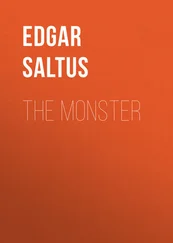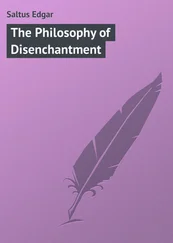Edgar Saltus - The Pace That Kills - A Chronicle
Здесь есть возможность читать онлайн «Edgar Saltus - The Pace That Kills - A Chronicle» — ознакомительный отрывок электронной книги совершенно бесплатно, а после прочтения отрывка купить полную версию. В некоторых случаях можно слушать аудио, скачать через торрент в формате fb2 и присутствует краткое содержание. Жанр: foreign_prose, на английском языке. Описание произведения, (предисловие) а так же отзывы посетителей доступны на портале библиотеки ЛибКат.
- Название:The Pace That Kills: A Chronicle
- Автор:
- Жанр:
- Год:неизвестен
- ISBN:нет данных
- Рейтинг книги:4 / 5. Голосов: 1
-
Избранное:Добавить в избранное
- Отзывы:
-
Ваша оценка:
- 80
- 1
- 2
- 3
- 4
- 5
The Pace That Kills: A Chronicle: краткое содержание, описание и аннотация
Предлагаем к чтению аннотацию, описание, краткое содержание или предисловие (зависит от того, что написал сам автор книги «The Pace That Kills: A Chronicle»). Если вы не нашли необходимую информацию о книге — напишите в комментариях, мы постараемся отыскать её.
The Pace That Kills: A Chronicle — читать онлайн ознакомительный отрывок
Ниже представлен текст книги, разбитый по страницам. Система сохранения места последней прочитанной страницы, позволяет с удобством читать онлайн бесплатно книгу «The Pace That Kills: A Chronicle», без необходимости каждый раз заново искать на чём Вы остановились. Поставьте закладку, и сможете в любой момент перейти на страницу, на которой закончили чтение.
Интервал:
Закладка:
"Well, Mr. Mistrial, you must let me quote the speech a lord made to a commoner, 'You are not a noble, sir, but you are worthy of being one.'" And Mr. Dunellen reaching out caught Roland's hand and shook it in his own. "I enter thoroughly into your delicacy the more readily because I do not encounter it every day – no, nor every month. It does me good – on my word it does. Now, if a compromise can, as you suggest, be effected, and you care to leave the matter in my hands, I will do my best to serve you. It may take some little time, we must seem neither zealous nor impatient, and meanwhile – h'm – I understood you to say something about your circumstances. Now if I can be of any – "
This offer Roland interrupted. "You are truly very kind, sir," he broke in, "and I thank you with all my heart. All the more so even because I must refuse. I have been badly brought up, I know; you see, I never expected that it would be necessary for me to earn my own living; yet if it is, I cannot begin too soon: but what would the end be if I began by borrowing money?"
As Roland delivered this fine speech he was the image of Honesty arrayed in a Piccadilly coat. He rose from his seat. "I am detaining you, I am sure. Let me get the papers together and bring them to you to-morrow."
"Do so, by all means," Mr. Dunellen answered, rising too. "Do so, by all means. But wait: to-morrow I may be absent. Could you not send them to my house this evening, or better still, bring them yourself? It would give me pleasure to have my daughter meet a man who is the moral portrait of his grandfather."
"Your daughter!" Roland exclaimed. "It is not possible that she is the Miss Dunellen whom I saw the other day at Tuxedo."
"With Mrs. Metuchen? Why, of course it is." And the lawyer looked as surprised as his client. "This is indeed a coincidence. But you will come, will you not?"
"I shall consider it a privilege to do so," Roland, with a charming affectation of modesty, replied; and presently, when he found himself in the street again, he saw, stretching out into beckoning vistas, a high-road paved with promises of prompt success.
And that evening, when the papers had been delivered, and Mr. Dunellen, leaving the guest to his daughter's care, had gone with them to his study, Roland could not help but feel that on that high-road his footing was assured; for, on entering the drawing-room, Justine had greeted him as one awaited and welcome, and now that her father had gone she motioned him to a seat at her side.
"Tell me," she said, "what is it you do to people? There is Mrs. Metuchen, who pretends to abominate young men, and openly admires you. To-day you captured my father; by to-morrow you will be friends with Guy."
"With Guy?" Mechanically Roland repeated the phrase. Then at once into the very core of memory entered the lancinating pang of a nerve exposed. During the second that followed, in that tumult of visions that visits him who awakes from a swoon, there came to him the effort made in Tuxedo to recall in what manner the name of Dunellen was familiar to his ears; but that instantly departed, and in its stead came a face one blur of tears, and behind it a stripling livid with hate. Could that be Guy? If it were, then indeed would the high-road narrow into an alley, with a dead wall at the end. Yet of the inward distress he gave no outward sign. About his thin lips a smile still played, and as he repeated the phrase he looked, as he always did, confident and self-possessed.
"Yes, I am sure you will like each other," the girl answered; "all the more so perhaps because no two people could be less alike. Guy, you see, is – "
But whatever description she may have intended to give remained unexpressed. A portière had been drawn, and some one was entering the room. Roland, whose back was toward the door, turned obliquely and looked.
"Why, there he is!" he heard Justine exclaim; and in the man that stood there he saw the stripling he had just evoked. Into the palms of his hands a moisture came, yet as Justine proceeded with some form of introduction he rose to his feet. "So you are the cousin," he mused; and then, with a bow in which he put the completest indifference, he resumed his seat.
"We were just talking of you," Justine continued. "Why didn't you come in last night?"
"It is snowing," the cousin remarked, inconsequently, and sat himself down.
"Dr. Thorold, you know;" and Justine, turning to Mistrial, began to relate one of those little anecdotes which are serviceable when conversation drags.
As she ran on, Roland, apparently attentive, marked that one of Thorold's feet was moving uneasily, and divined rather than saw that the fingers of his hand were clinched. "He is working himself up," he reflected. "Well, let him; it will make it the easier for me." And as he told himself this he turned on Thorold a glance which he was prepared to instantly divert. But the physician was not looking; he sat bolt-upright, his eyes lowered, and about his mouth and forehead the creases of a scowl.
Dr. Thorold was of that class of man that women always like and never adore. He was thoughtful of others, and considerate. Physically he was well-favored, and pleasant to the eye. He was sometimes dull, but rarely selfish; by taste and training he was a scholar – gifted at that; and yet through some accident of nature he lacked that one fibre which differentiates the hero from the herd. In the way we live to-day the need of heroes is so slight that the absence of that fibre is of no moment at all – a circumstance which may account for the fact that Justine admired him very much, trusted him entirely, and had she been his sister instead of his cousin could not have appreciated him more.
And now, as Roland eyed him for one moment, through some of those indetectable currents that bring trivialities to the mind that is most deeply engrossed he noticed that though the physician was in dress the shoes he wore were not veneered. Then at once he entered into a perfect understanding of the circumstances in which he was placed. Though he lost the game even as the cards were being dealt, at least he would lose it well. "I'll teach him a lesson," he decided; and presently, as Justine ceased speaking, he assumed his gayest air.
"Yes, yes," he exclaimed, and gave a twist to his light mustache. He had caught her ultimate words, and with them a cue.
"Yes, I remember in Nepal – "
And thereupon he carried his listener through a series of scenes and adventures which he made graphic by sheer dexterity in the use of words. His speech, colored and fluent, was of exactly that order which must be heard, not read. It was his intonation which gave it its charm, the manner in which he eluded a detail that might have wearied; the expression his face took on at the situations which he saw before describing, and which he made his auditor expect; and also the surety of his skill in transition – the art with which he would pass from one idea to another, connect them both with a gesture, and complete the subject with a smile. The raconteur is usually a bore. When he is not, he is a wizard. And as Roland passed from one peak of the Himalayas to another, over one of the two that listened he exerted a palpable spell. At last, the end of his tether reached, he turned to the cousin, and, without a hesitation intervening, asked of him, as though the question were one of really personal interest, "Dr. Thorold, have you ever been in the East?"
Thorold, thrown off his guard, glared for an instant, the scowl still manifest; then he stood up. "No, sir; I have not," he answered; and each of the monosyllables of his reply he seemed to propel with tongue and teeth. "Good-night, Justine." And with a nod that was rather small for two to divide, took himself from the room.
He reached the portière before Justine fully grasped the discourtesy of his conduct. She stared after him wonderingly, her lips half parted, her clear eyes dilated and amazed, the color mounted to her cheeks, and she made as though to leave her seat.
Читать дальшеИнтервал:
Закладка:
Похожие книги на «The Pace That Kills: A Chronicle»
Представляем Вашему вниманию похожие книги на «The Pace That Kills: A Chronicle» списком для выбора. Мы отобрали схожую по названию и смыслу литературу в надежде предоставить читателям больше вариантов отыскать новые, интересные, ещё непрочитанные произведения.
Обсуждение, отзывы о книге «The Pace That Kills: A Chronicle» и просто собственные мнения читателей. Оставьте ваши комментарии, напишите, что Вы думаете о произведении, его смысле или главных героях. Укажите что конкретно понравилось, а что нет, и почему Вы так считаете.










